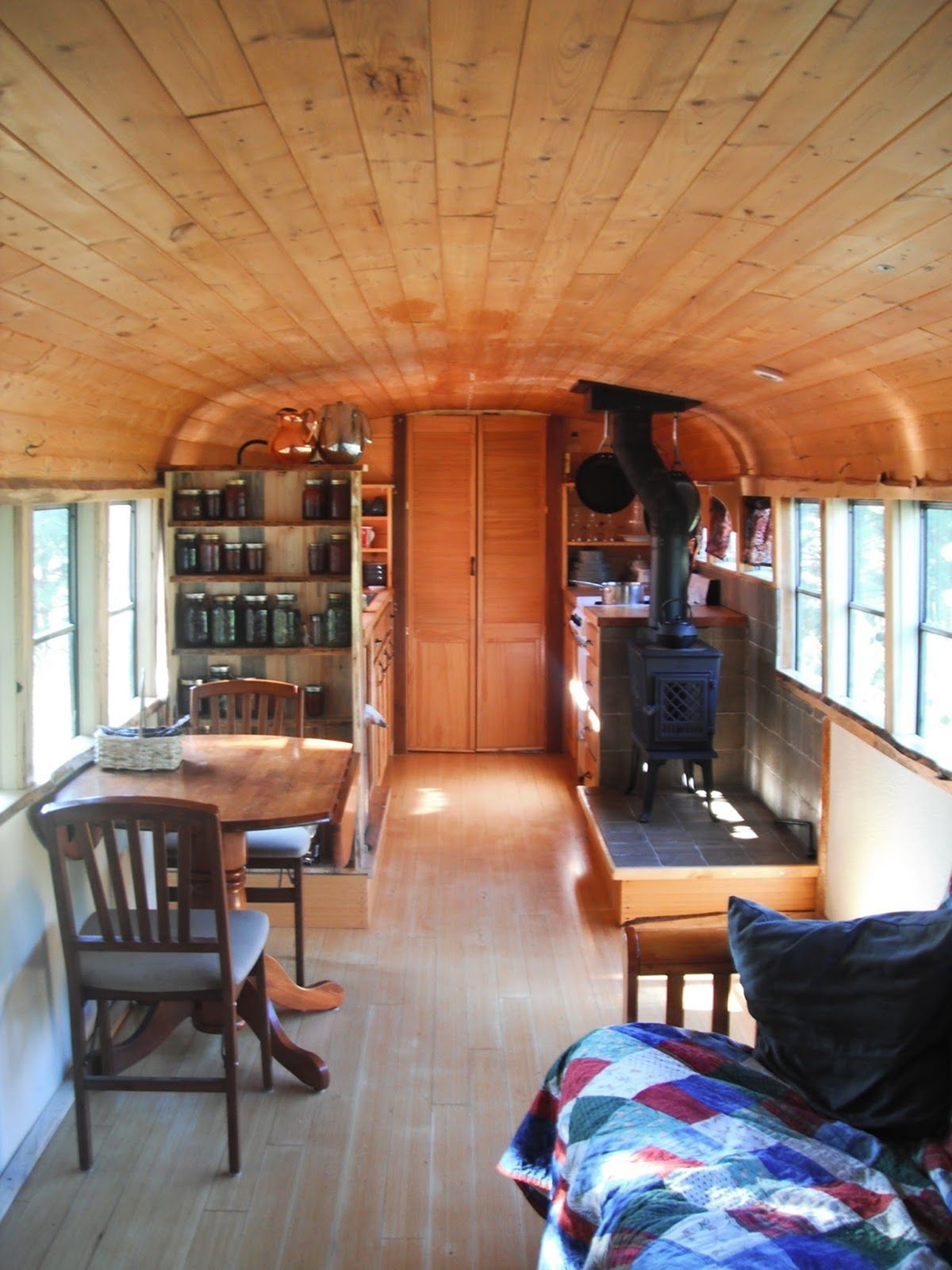Imagine transforming a bus into your personal haven on wheels, a gateway to exploring hidden corners of the world. This comprehensive guide equips you with the knowledge and inspiration to turn your bus conversion dream into a rolling reality. From selecting the ideal bus to mastering essential systems, we’ll navigate this exciting journey together.
Choosing the Perfect Bus
Choosing your bus is like selecting the foundation of your future home. Consider these popular options:
Short Bus Conversions: The Nimble Nomad
Ideal for solo adventurers or couples, short buses offer maneuverability and easy parking, perfect for navigating city streets and accessing secluded campsites. While smaller than other options, they provide a cozy and efficient living space. Explore our boat campers for another compact adventure option.
Skoolie Conversions: The Family Fortress
Retired school buses provide ample space for families or those desiring spacious living. This blank canvas offers endless possibilities for bedrooms, kitchen, bathroom, and even an office nook. Be mindful of potentially higher fuel costs and parking challenges.
Luxury Coach Conversions: The Rolling Palace
For those seeking a luxurious travel experience, converted coaches offer pre-existing amenities like bathrooms and air conditioning. While pricier upfront, they provide comfort and style for a truly premium journey.
The Conversion Process
Transforming a bus into a home involves several key stages:
Planning and Design: Your Dream’s Blueprint
Thorough planning is crucial. Consider your lifestyle, intended bus usage, and essential amenities. Sketching floor plans and creating a mood board helps visualize your dream space and maximize every square inch.
Mechanical and Electrical: The Bus’s Vital Organs
This stage involves engine maintenance, installing a power system for off-grid living (solar panels, batteries), and setting up plumbing. Consulting professionals is recommended for those less mechanically inclined.
Interior Build-Out: Creating Your Cozy Haven
This is where your vision comes to life. Insulation, framing, flooring, and wall coverings create a comfortable, personalized living environment. Prioritize clever storage, comfortable sleeping arrangements, and a functional kitchen.
Exterior Modifications: Making a Statement
Exterior modifications enhance functionality and style. Fresh paint, windows, roof racks, and solar panels contribute to both aesthetics and practicality. Awnings can create a shaded outdoor living space.
Community and Resources
Connect with the vibrant bus conversion community for inspiration, advice, and support. Online platforms like YouTube, TikTok, and Facebook groups offer valuable resources. Some experts believe community engagement is essential for a successful conversion.
Important Considerations: The Fine Print
Before hitting the road, address these practicalities:
- Legal Matters: Research licensing, registration, and regulations specific to converted buses in your area. Regulations vary significantly.
- Budget: Conversions can range from budget-friendly to expensive. Create a realistic budget and stick to it as much as possible.
- Timeline: Conversions can take months or even years. Be realistic about your timeline and avoid rushing the process.
Is a Bus Conversion Cheaper Than an RV?
Choosing between a bus conversion and an RV depends on your budget, DIY skills, and desired level of customization.
Cost Breakdown
- Bus Conversion: Costs can range from $10,000 to $70,000+, influenced by bus size, materials, complexity, and labor (DIY vs. professional). Some meticulously tracked builds suggest savings might be less than initially anticipated.
- Used RV: Prices range from $10,000 to $100,000+, depending on age, condition, size, and features. A vintage RV might be a bargain but require significant repairs.
- Dive into the history and legacy of California at Bunker Hill for a historical perspective on travel and community.
Pros and Cons
| Feature | Buying an RV | Converting a Bus |
|---|---|---|
| Cost | Likely more expensive | Potentially cheaper |
| Convenience | Ready to go | Time-consuming construction |
| Customization | Limited | Fully customizable |
| Financing | Generally easier | Can be challenging |
| Repairs | Pre-existing issues possible, depreciation likely | More control, requires DIY skills |
| Skills Required | None | Moderate to extensive |
| Time Investment | Minimal | Significant |
The Verdict
While a bus conversion can be cheaper, it’s not guaranteed. Careful research and realistic budgeting are crucial. DIY offers significant savings but requires time, skills, and tools. Professional conversions expedite the process but increase costs.
Consider your priorities and choose the path that best suits your lifestyle and financial situation. Converting a bus can cost roughly 10% of a comparable used RV, according to Popular Mechanics.
Is Converting a Bus Worth It?
A bus conversion is a major undertaking. Is it worthwhile? The answer depends on your individual circumstances.
Key Considerations
- Cost: $10,000 – $70,000+ depending on various factors.
- Time: Months to years, depending on complexity and available time.
- Challenges: Rust, condensation, wiring, weight limits. Research beforehand to mitigate potential issues.
- Lifestyle: Small space living, regular maintenance, parking/hookup challenges.
- Location and Regulations: Zoning regulations, conversion location space, and storage options significantly influence the complexity of a project.
Pros and Cons
| Pros | Cons |
|---|---|
| Lower potential cost than buying an RV | Significant financial investment required |
| Complete customization and personalization | Time-consuming and demanding project |
| Freedom to travel and explore | Potential for unexpected costs and problems |
| Possibility of off-grid living | Limited space and amenities |
Making the Decision
Weigh the financial implications, time commitment, potential challenges, and desired lifestyle against the potential rewards. Current research suggests a growing trend toward alternative living arrangements like bus conversions. However, the long-term implications are still being studied.
What is a Bus Conversion?
A bus conversion transforms a regular bus (often a school bus or shuttle bus) into a mobile dwelling. It’s a personalized tiny house on wheels, offering a unique blend of travel and sustainable living.
Why Convert a Bus?
- Personalization: Tailor your living space to your exact needs and preferences.
- Potential Affordability: Often cheaper than buying a new RV.
- Durability: Buses are built to last, providing a sturdy base.
- Sustainability: Repurposing an existing vehicle is environmentally friendly.
- Community: Join a supportive network of like-minded adventurers.
Advantages
- Unique Design: Create a truly personalized space.
- Potential Cost Savings: Compared to new RVs.
- Robust Structure: Built for durability.
- Eco-Friendly: Repurposing reduces waste.
Disadvantages
- Time Intensive: Requires significant time investment.
- DIY Skills Needed: Plumbing, electrical, carpentry.
- Limited Space: Smaller than many RVs.
- Parking & Hookups: Can be challenging to find.
Is it Right for You?
Consider your budget, desired lifestyle, and DIY skills. If you yearn for adventure, crave freedom, and are excited by creating a unique living space, a bus conversion might be the perfect fit.
- Memorial Stones for Gardens: A Guide to Creating a Lasting Tribute - April 29, 2025
- Melon Cut Diamonds: A Comprehensive Guide - April 29, 2025
- MarketStreet Lynnfield Stores: A Complete Directory & Shopping Guide - April 29, 2025










